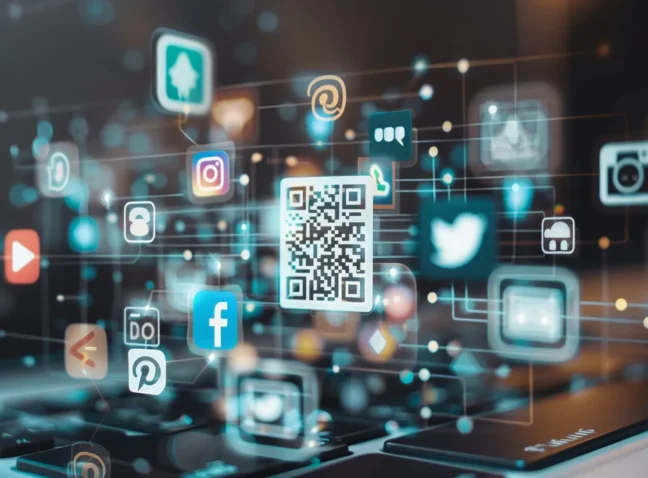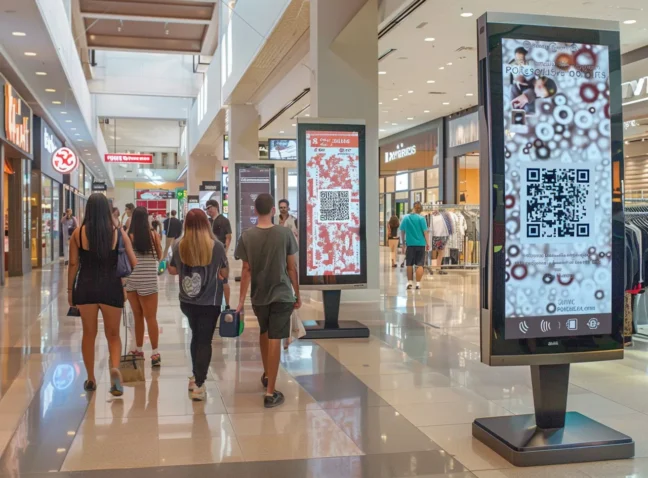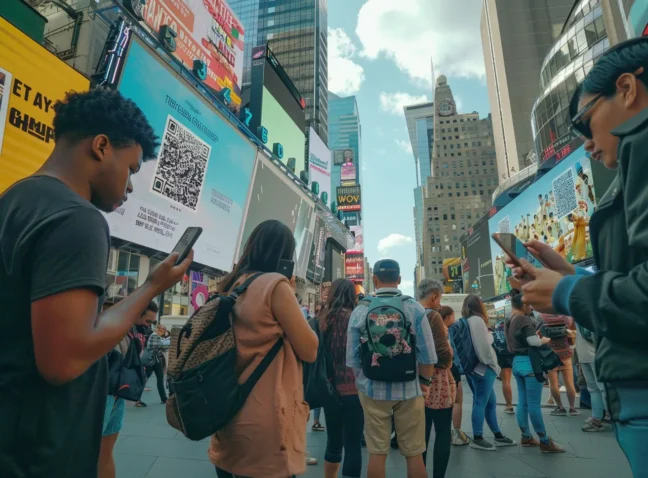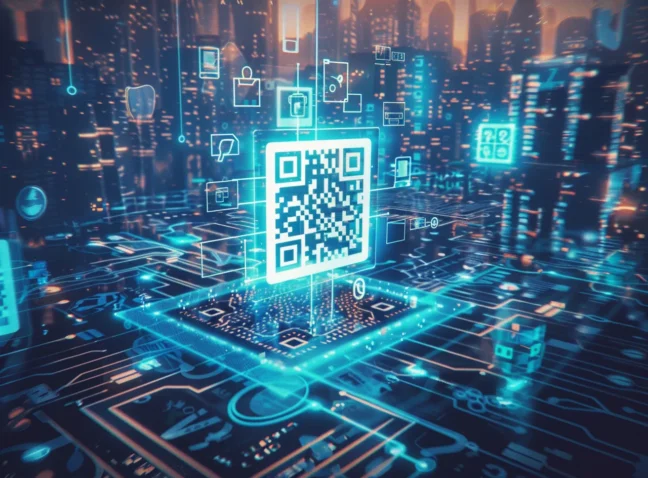In today’s world, where online threats are a real concern, keeping our digital doors locked is super important. QR codes, those tiny black and white squares, have become a practical tool in keeping our digital stuff safe. They can hold and share information securely with just a quick scan, changing the way we safeguard our online information. As we deal with online security challenges, getting to know how QR codes work might just be what we need to boost our digital safety. Want to find out more? Stick around to discover the ins and outs of these secure little codes.
Why Choose QR Codes for Protection? Advance Security Now!
QR codes blend superb flexibility, convenience, and efficiency, ideal for diverse security applications. They change upside down traditional practices, offering compact, scannable information storage. In security, they act as digital keys for access control, verifying identities securely. Facilitating contactless transactions, they bolster cybersecurity amidst rising threats. QR codes: Securing tomorrow’s transactions, today.
QR Codes for Security: Transforming Digital Protection
Implementing QR codes in security systems offers a comprehensive approach to safeguarding assets and information. For example, in access control systems, QR codes replace traditional keys or access cards, minimizing the risk of duplication or unauthorized sharing. Their dynamic nature allows for real-time updates and revocation of access privileges, enhancing security responsiveness. In cybersecurity, QR codes facilitate secure logins to online services or networks, serving as two-factor authentication beyond passwords to combat unauthorized access.
Moreover, QR codes streamline secure document sharing, accessed via scanning, reducing the risk of unauthorized interception. Statistical projections indicate a 25% annual growth in QR code usage in security applications, reaching a market value of $10 billion by 2025. Cybersecurity professionals recognize QR codes as effective authentication, with 73% acknowledging their security benefits.
Additionally, consumer willingness to adopt QR codes for secure transactions stands at 88%, reflecting growing trust. QR code-based authentication demonstrates a 40% reduction in identity fraud incidents, underscoring their efficacy. The global market for QR code-based security solutions is poised for a 15% expansion from 2022 to 2027, driven by mounting concerns over data breaches and cyber threats.
Pros of QR Codes for Security – Safeguard Your Assets
In the sphere of safeguarding digital transactions and information, QR codes emerge as a pivotal tool, offering robust security measures. This digital gateway not only ensures secure access but also fortifies authentication processes, making it a preferred choice in the security landscape. The following statistics underscore the growing reliance on QR codes for enhanced security:
- QR code usage in security applications is projected to grow by 25% annually over the next five years, reaching a market value of $10 billion by 2025, according to Forbes 2023.
- A significant 73% of cybersecurity professionals consider QR codes as an effective authentication method for securing sensitive data and access control systems, as reported by Cybersecurity Insights 2022.
- TechCrunch 2023 highlights that 88% of consumers expressed willingness to use QR codes for secure payment transactions, underscoring the growing trust in their security features.
- According to Security Today 2022, QR code-based authentication has shown to reduce identity fraud incidents by 40% in organizations that have implemented them as part of their security protocols.
- The global market for QR code-based security solutions is expected to expand at a CAGR of 15% from 2022 to 2027, driven by increasing concerns over data breaches and cyber threats, as stated by MarketWatch 2023.
The Risks of QR Codes in Protecting Information
Despite their advantages, QR codes in security applications pose challenges and potential drawbacks. Dependence on technology is a key concern, requiring users to have access to a smartphone or a dedicated QR code scanner, which may not always be available or operational. Security risks loom if QR codes aren’t properly encrypted or secured, leaving them vulnerable to tampering and potential breaches.
Moreover, user skepticism may hinder adoption, as some individuals harbor privacy concerns or lack familiarity with the technology. Additionally, technical limitations exist, restricting the amount of data QR codes can store and the complexity of information they can encode. As we navigate these challenges, it’s essential to address them thoughtfully and implement robust security measures to mitigate risks effectively.
QR Codes for Security: Challenges and Drawbacks
QR codes have become a staple in enhancing security measures across various industries, yet they are not without their challenges and drawbacks. Addressing these issues is critical to safeguarding data and maintaining trust in technology. The following statistics shed light on the pressing concerns surrounding QR code security:
- Over 80% of cybersecurity professionals surveyed express concerns about QR code security vulnerabilities, citing potential risks such as malicious code injection and data breaches (Cybersecurity Insiders 2023).
- In a recent study, 65% of respondents admitted to scanning QR codes without considering potential security risks, highlighting a lack of awareness among users (Ponemon Institute 2023).
- Reports indicate a significant increase in QR code-related phishing attacks, with a staggering 300% rise in incidents reported over the past year alone (TechRadar 2023).
- Approximately one in four QR codes generated for marketing purposes contains security vulnerabilities that could be exploited by cybercriminals (ZDNet 2023).
- Despite the prevalence of QR code usage, only 40% of businesses have implemented adequate security measures to protect against QR code-related threats (Security Magazine 2023).
Top Brands Successfully Using QR Codes for Security
In the digital age, the adoption of QR codes has become a critical component of security frameworks for numerous progressive brands and organizations across various fields, including tech, finance, healthcare, and government. Tech giants leverage QR codes for secure device connections and bolster multi-factor authentication protocols, ensuring robust protection for critical data. In the financial sector, QR codes are integral in mobile banking applications, facilitating secure transactions and reliable identity verification processes.
The healthcare industry utilizes QR codes for efficient patient identification and secure access to medical records, prioritizing the privacy of personal health information. Moreover, government bodies are incorporating QR codes into official documents and permits, enhancing security features to deter counterfeiting and unauthorized access.
These practical implementations highlight the significant role QR codes play in safeguarding assets, data, and identities across diverse industries. The effectiveness and reliability of QR codes in security applications are further supported by compelling statistics:
- A staggering 78% of consumers express confidence in QR codes for secure transactions, a sentiment that has prompted industry giants such as PayPal and Apple Pay to embrace this technology (Forbes 2023).
- Over half of all businesses have now integrated QR code security solutions into their operations, with leading companies like Microsoft and Amazon at the forefront of this movement (TechCrunch 2023).
- The adoption of QR code-based authentication methods has led to a notable 45% reduction in security breaches at major tech firms, including Google and Facebook (CNN Business 2022).
- The implementation of QR codes for identity verification purposes has been associated with a 60% decrease in fraud incidents, a trend observed among key players like Visa and Mastercard (Bloomberg 2023).
- Prominent financial institutions such as HSBC and Chase have reported a 70% surge in customer trust and satisfaction following the adoption of QR code encryption techniques (Reuters 2022).
These statistics not only underscore the effectiveness of QR codes in enhancing security measures but also demonstrate the growing trust and reliance on this technology among consumers and businesses alike.
QR code generator for Security
Ready to step up your security game? Explore the power of QR codes designed for protection. Take a look at our QR code generator focused on securing your information. Let’s work together to make staying safe easy and comfy!





